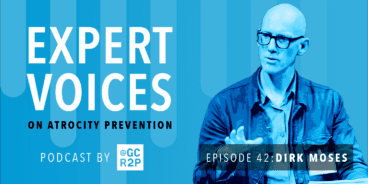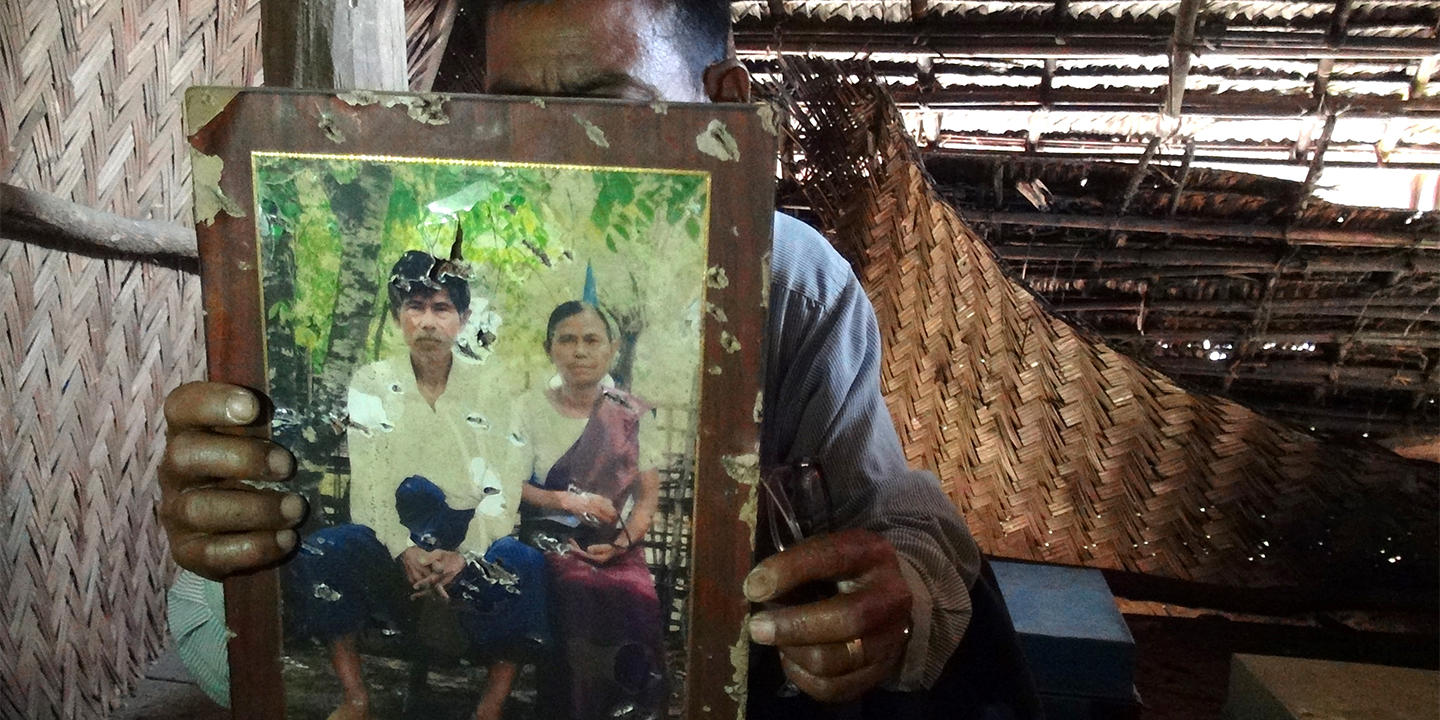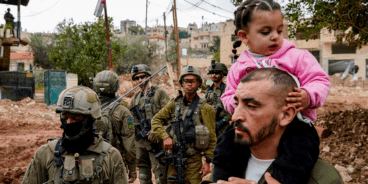

Atrocity Alert No. 317: Myanmar (Burma), Ukraine and Afghanistan
Atrocity Alert is a weekly publication by the Global Centre for the Responsibility to Protect highlighting situations where populations are at risk of, or are enduring, mass atrocity crimes.
DEADLY ARMED CONFLICT RETURNS TO MYANMAR’S RAKHINE STATE
Following weeks of escalating conflict in Rakhine State and southern Chin State, a ceasefire that has been in place between Myanmar’s (Burma) military — the Tatmadaw — and the ethnic armed organization the Arakan Army (AA) since November 2020 appears to have entirely broken down. The temporary ceasefire was established following two years of war between the Tatmadaw and AA – an armed group seeking greater autonomy for the ethnic Rakhine Buddhist population in Rakhine State. Since June, tensions between the Tatmadaw and AA have steadily risen, with reports of intense fighting, shelling and deployment of troops since early August.
Most of the fighting has been concentrated in Maungdaw, Rathedaung, Buthidaung and Mrauk-U townships in Rakhine State, as well as in Paletwa township in southern Chin State. According to the UN Office for the Coordination of Humanitarian Affairs, as of 5 September the violence had displaced nearly 9,600 people, bringing the total number displaced by past and ongoing fighting between the Tatmadaw and AA to almost 84,000. Key roads and waterways have been blocked, restricting freedom of movement and halting humanitarian assistance from reaching people in need.
Escalating armed conflict in Rakhine State comes as populations across the country continue to face atrocity risks resulting from the February 2021 coup. On 12 September Nicholas Koumjian, Head of the UN Independent Investigative Mechanism for Myanmar (IIMM), presented the IIMM’s fourth annual report on Myanmar during the 51st session of the Human Rights Council. Between 16 June 2021 to 30 June 2022 the IIMM found that “the scope of potential international crimes taking place in Myanmar has broadened dramatically,” with evidence indicating that the military continues to commit war crimes, as well as the crimes against humanity of murder, torture, deportation and forcible transfer, rape and other forms of sexual violence, persecution and imprisonment.
Renewed fighting between the Tatmadaw and AA not only increases the risk of atrocities facing civilians but also complicates the prospects for the safe, dignified and voluntary repatriation of Rohingya refugees from Bangladesh to Myanmar. Liam Scott, Myanmar Expert at the Global Centre for the Responsibility to Protect, said, “the resurgence of violence between the Arakan Army and the Tatmadaw underscores the international community’s ongoing failure to effectively respond to the post-coup crisis in Myanmar. Imposing arms embargoes and sanctions against the oil and gas sectors are the least individual states and the UN Security Council should do to uphold their Responsibility to Protect.”
UKRAINIAN OFFENSIVE GAINS GROUND AS CIVILIAN CASUALTY FIGURES NEAR 14,000
Since the beginning of September, Ukrainian forces have engaged in a renewed offensive, retaking thousands of square miles of territory in their country’s south and northeast. The most significant gains have been made around the city of Kharkiv, where retreating Russian forces have intensified targeted attacks against civilian infrastructure, including on power plants providing heat and electricity to civilians in the region and beyond. Fighting also continues along front lines in Donbas, with the UN reporting at least 50 civilian casualties between 2-4 September in the Donetsk region.
As Russian forces retreat from previously occupied areas, international human rights groups have urged Ukrainian authorities to prioritize the documentation of evidence of possible atrocities, including war crimes and crimes against humanity. Any evidence found would add to the over 26,000 war crimes investigations currently underway by Ukrainian authorities. Throughout the conflict, Russian forces and Russian-backed armed groups have perpetrated myriad abuses, including indiscriminate attacks on civilians and civilian infrastructure, rape and sexual violence, and the use of cluster munitions. The UN has also documented reports of the use of cluster munitions in populated areas by Ukrainian forces.
International human rights groups have also accused Russian forces of the forcible transfer of civilians from Ukraine. A recent report by Human Rights Watch documented accounts of forcible transfers to Russia, with some civilians interned for security processing. The forcible transfer of civilians is a serious violation of international humanitarian and human rights law. Human Rights Watch concluded that the circumstances may amount to war crimes and crimes against humanity. During a UN Security Council meeting on the situation in Ukraine on 7 September, Under Secretary-General Rosemary DiCarlo, stressed that, “the persistent allegations of forced displacement, deportation and so-called “filtration camps” run by the Russian Federation and affiliated local forces are extremely disturbing.”
As the war in Ukraine continues in the south and northeast, civilians continue to bear the brunt of fighting. Russia’s invasion of Ukraine has created one of the world’s largest refugee crises. Although millions of people have returned to Ukraine, thousands continue to be newly displaced along the front lines, including approximately 60,000 people evacuated in August alone. Since 24 February the UN Human Rights Monitoring Mission in Ukraine has confirmed almost 14,000 civilian casualties, including 5,827 killed, though it asserts that the figure is likely much higher.
All parties to the conflict must ensure the protection of civilians in areas impacted by ongoing fighting. All violations of international law must be investigated and the perpetrators held accountable, regardless of rank or affiliation.
UN SPECIAL RAPPORTEUR WARNS OF LIKELY CRIMES AGAINST HUMANITY IN AFGHANISTAN
During the 51st session of the UN Human Rights Council, on 12 September the Special Rapporteur on the situation of human rights in Afghanistan, Richard Bennett, presented his first report since the establishment of his mandate. Notably, the report concluded that attacks against ethnic and religious minorities in Afghanistan bear “the hallmarks of crimes against humanity” as they “appear to be systematic in nature and reflect elements of an organizational policy.” Many of these attacks were perpetrated by the so-called the Islamic State in Iraq and the Levant-Khorasan (ISIL-K) and directly targeted ethnic and religious minorities, including Hazara Shias, other Shia Muslims, Sufi Muslims, Sikhs and others. While presenting the report, Special Rapporteur Bennett noted that ISIL-K has “systematically” attacked places of worship, education and other civilian areas.
Targeted attacks against ethno-religious minorities have regularly occurred in Afghanistan since the Taliban took over the country more than a year ago. On 2 September a suicide bomb attack occurred at Guzargah Mosque in Herat, western Afghanistan, killing 18 and wounding 23 others. This attack follows a series of mass casualty events that occurred throughout August, killing and injuring more than 250 Afghans. Many of these attacks were perpetrated by ISIL-K.
According to a recent report from the UN Assistance Mission in Afghanistan’s Human Rights Service, 700 civilians were killed and 1,406 wounded from 15 August 2021 to 15 June 2022. Members of ethnic and religious minorities have also been arbitrarily arrested, tortured, summarily executed and in some cases forced to flee the country. Special Rapporteur Bennett underscored that, “the human rights situation was concerning for decades prior to the Taliban seizing control of the country in August 2021; since then, it has significantly deteriorated.”
The Taliban de facto authorities have taken minimal steps to prevent or halt these crimes and meaningfully protect minority communities. According to Human Rights Watch, targeted attacks often go unreported as a result of the Taliban’s increasing crackdown on independent media. Special Rapporteur Bennett emphasized in his report that Taliban de facto authorities have a “responsibility as duty bearers to protect all Afghans against threats to life and security,” including through safeguarding schools, places of worship and other locations frequented by ethno-religious minorities.
The Taliban de facto authorities must heed all of the recommendations by the Special Rapporteur, including their responsibility to protect all Afghans equally. The Taliban should also allow the assistance of the international community in meeting these obligations.
Related Content


Populations at Risk, March 2025
